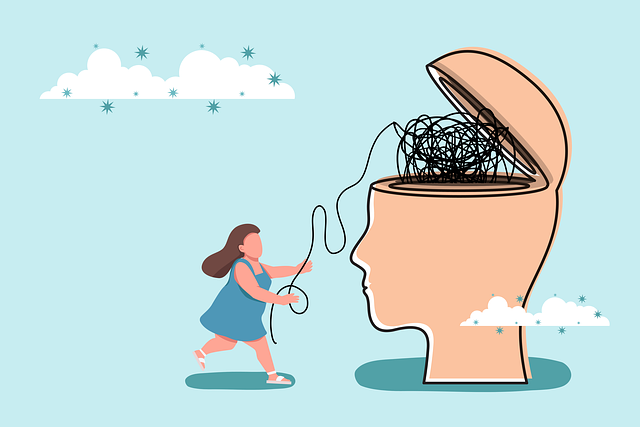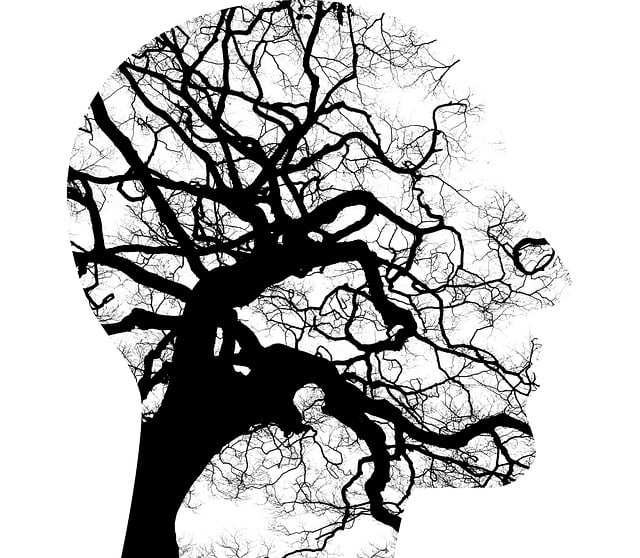Therapy for young adults facing cancer challenges requires a culturally sensitive approach due to their unique emotional and social complexities, exacerbated by economic disparities and educational interruptions. Mental healthcare providers must understand and respect cultural norms impacting health, illness, and healing, tailoring crisis interventions and risk management plans accordingly. This involves integrating culturally competent care, including social skills training, empathy-building techniques, and burnout prevention for staff, to enhance peer connections, caregiver understanding, and patient engagement. By combining these strategies, therapists can create inclusive environments that promote emotional well-being, reduce stigma, and ultimately lead to better outcomes for diverse young adult cancer patients.
In the diverse landscape of mental healthcare, cultural sensitivity is a cornerstone for effective therapy. This article delves into the crucial role of understanding and navigating cancer issues within young adult populations from various cultural backgrounds. We explore how cultural beliefs and practices influence mental health outcomes and propose strategies to foster inclusive environments. Through case studies, we demonstrate successful implementations of culturally sensitive approaches tailored to address therapy for young adults with cancer issues.
- Understanding Cultural Sensitivity: A Cornerstone for Effective Therapy
- Navigating Cancer Issues within Diverse Young Adult Populations
- Recognizing the Impact of Cultural Beliefs and Practices on Mental Health
- Strategies to Foster an Inclusive Environment in Mental Healthcare Settings
- Case Studies: Successful Implementation of Culturally Sensitive Approaches
Understanding Cultural Sensitivity: A Cornerstone for Effective Therapy

Understanding cultural sensitivity is a cornerstone for effective therapy, especially when addressing complex issues like cancer in young adults. In a diverse society, mental healthcare providers must recognize and appreciate the unique perspectives, beliefs, and communication styles of individuals from various ethnic, racial, and cultural backgrounds. This involves going beyond language translation to truly comprehending and respecting cultural norms that shape one’s understanding of health, illness, and healing.
For young adults facing cancer, cultural sensitivity in therapy can significantly impact their willingness to engage in treatment and their overall coping strategies. Mindfulness meditation, for instance, may be perceived differently across cultures, with some finding it a helpful relaxation technique while others associate it with spiritual practices. Effective mental healthcare professionals integrate crisis intervention guidance tailored to these cultural nuances, ensuring that support is both culturally competent and relevant to the client’s experience. Risk management planning for mental health professionals also demands a nuanced approach, considering the potential cultural barriers and strengths that can influence a young adult’s journey with cancer.
Navigating Cancer Issues within Diverse Young Adult Populations

Cancer issues among young adults present unique challenges in mental healthcare settings, demanding a nuanced approach that respects cultural diversity. Young adults facing cancer often navigate complex emotions, from fear and anxiety to feelings of isolation due to their diagnosis. These experiences can be further complicated by social factors, including economic disparities, educational interruptions, and changes in interpersonal relationships. Cultural sensitivity is paramount when addressing these issues, as healthcare providers must create safe spaces that resonate with diverse populations.
Effective therapy for young adults with cancer issues involves integrating strategies such as social skills training to enhance peer connections and empathy-building techniques to foster understanding among caregivers. Additionally, burnout prevention strategies for healthcare providers are essential to maintaining the quality of care. By combining these approaches, mental health professionals can better support this vulnerable population, ensuring that their cultural identities are celebrated and their unique needs are met throughout their cancer journey.
Recognizing the Impact of Cultural Beliefs and Practices on Mental Health

Understanding the intricate relationship between culture and mental health is a cornerstone in providing effective therapy for young adults, especially those navigating cancer issues. Cultural beliefs and practices significantly influence an individual’s perception of well-being and seeking help. For instance, some cultures may view mental health struggles as a personal weakness or a spiritual trial, hindering patients from openly discussing their symptoms. Others might prioritize familial or communal support over individual therapy, impacting treatment plans.
This cultural context is particularly relevant when addressing anxiety relief, depression prevention, and burnout prevention among young adults with cancer. Therapists must be sensitive to these nuances to create a safe and supportive environment. By recognizing and incorporating cultural practices into treatment, mental healthcare professionals can enhance patient engagement, improve coping strategies, and ultimately foster better outcomes for this diverse population.
Strategies to Foster an Inclusive Environment in Mental Healthcare Settings

Creating an inclusive environment in mental healthcare settings is vital for effectively supporting individuals from diverse cultural backgrounds, including young adults facing cancer issues. Strategies to foster such inclusivity include cultural competency training for staff, where they learn about different cultural practices, beliefs, and communication styles that may impact therapy. This training enables healthcare professionals to provide tailored care, ensuring that every patient feels respected and understood.
Additionally, incorporating Emotional Well-being Promotion Techniques and Anxiety Relief strategies that are culturally sensitive can significantly enhance the overall experience. For instance, offering therapeutic spaces that accommodate various cultural preferences, such as quiet rooms or those with specific decor, can help reduce stress. Mental Illness Stigma Reduction Efforts should also be implemented to create a safe haven where patients feel comfortable discussing their experiences without fear of judgment, fostering a deeper connection between client and therapist.
Case Studies: Successful Implementation of Culturally Sensitive Approaches

In the realm of mental healthcare, cultural sensitivity is a game-changer, especially when tailored for young adults grappling with cancer issues. Case studies illustrate that incorporating culturally sensitive approaches significantly enhances therapy outcomes. For instance, a study focusing on a diverse group of young adult cancer survivors revealed that those receiving therapy infused with traditional cultural practices and community support networks experienced improved emotional well-being promotion techniques. This personalized approach not only aided in their mood management but also fostered a sense of belonging and resilience.
The successful implementation of these strategies underscores the importance of understanding and respecting diverse cultural beliefs and values within mental healthcare settings. By integrating ancient healing methods, community involvement, and culturally relevant communication styles, therapists can create safe spaces that resonate with young adults from various ethnic and socioeconomic backgrounds. This holistic approach not only respects individuals’ identities but also empowers them to navigate their cancer journeys with enhanced emotional resilience and improved mood management skills.
Cultural sensitivity is a fundamental aspect of providing effective mental healthcare, especially when treating young adults with diverse backgrounds. By understanding and navigating cancer issues within these populations, recognizing cultural beliefs, and implementing inclusive strategies, therapists can create safe spaces that foster healing. The case studies presented highlight successful approaches, emphasizing the importance of culturally sensitive practices in enhancing therapy outcomes for young adults facing cancer-related challenges. This holistic approach ensures that mental healthcare remains accessible and tailored to meet the unique needs of every individual, regardless of their cultural heritage.














